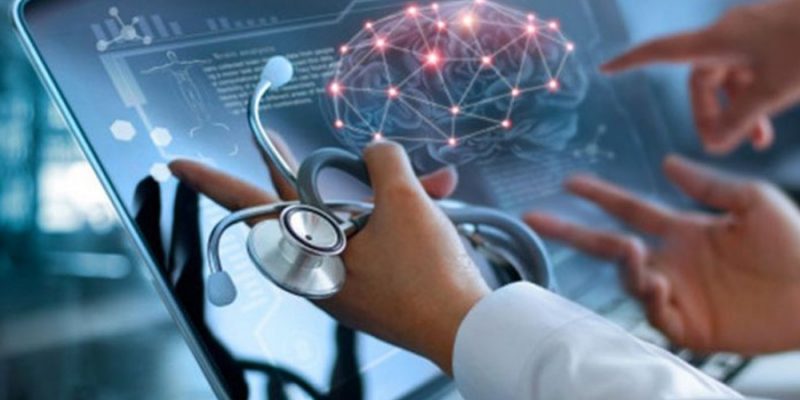10 Importance Of Technology In Healthcare
The healthcare landscape is undergoing a 10 importance of technology in healthcare dramatic transformation fueled by advancements in technology. From AI-powered diagnostics to remote patient monitoring, these innovations hold immense potential to improve the quality, accessibility, and affordability of healthcare. Let’s delve into ten key ways technology is revolutionizing healthcare:
Enhanced Diagnostics and Treatment Plans: Artificial intelligence (AI) is making a significant impact on diagnostics. This allows for:
Earlier and More Accurate Diagnoses: AI can identify patterns and anomalies that might escape the human eye, leading to earlier detection of diseases.Follow Blow Foam for more amazing article and SEO services.
Personalized Treatment Plans: By analyzing a patient’s 10 importance of technology in healthcare unique medical history and genetic makeup, AI can help healthcare providers tailor treatment plans to maximize effectiveness and minimize side effects.
Revolutionizing Surgery: Robotic surgery is no longer science fiction. Robotic arms, guided by surgeons, can perform minimally invasive procedures with unmatched precision and control. This translates to:
Reduced Tissue Damage: Smaller incisions minimize damage to surrounding tissues, leading to faster recovery times and less pain for patients.
Improved Surgical Outcomes: Enhanced precision allows for more 10 importance of technology in healthcare intricate and delicate procedures, potentially improving surgical success rates.
Precision Medicine: Tailoring Treatments to You: The one-size-fits-all approach to medicine is becoming a relic of the past. Advancements in genomics and big data analytics are paving the way for precision medicine:
Genetic Testing: By analyzing an individual’s genetic makeup, doctors can identify potential risk factors for certain diseases and tailor preventive measures accordingly.
Targeted Therapies: Drugs can be developed and prescribed based on a patient’s specific genetic profile, potentially leading to more effective treatments with fewer side effects.
Telemedicine: Healthcare at Your Fingertips: Gone are the days of long 10 importance of technology in healthcare waits in crowded waiting rooms.
Increased Accessibility: Telemedicine eliminates geographical barriers, providing access to specialist care for those in remote areas or with mobility limitations.
Improved Convenience: Patients can receive consultations from the comfort of their homes, reducing time and travel costs.
Wearables and Remote Monitoring: Wearable devices like smartwatches and fitness trackers are transforming how we monitor our health:
Real-Time Health Data: These devices can track heart rate, blood pressure, sleep 10 importance of technology in healthcare patterns, and even blood sugar levels, providing valuable data for both patients and healthcare providers.
Early Detection of Health Issues: Continuous health data can help identify potential health concerns early on, allowing for timely intervention and preventive measures.
3D Printing: From Prototypes to Prosthetic Limbs: 3D printing technology is opening doors to innovative medical applications:
Custom-Made Prosthetics: Imagine 3D-printed prosthetics perfectly designed for an individual’s needs, improving comfort, functionality, and overall quality of life.
Bioprinting Advancements: 3D printing can be used to create biocompatible implants and even human tissues for research purposes, potentially leading to breakthroughs in regenerative medicine.
Electronic Health Records (EHRs): Streamlining Patient Care: EHRs provide a centralized platform to store and manage a patient’s medical history:
Improved Care Coordination: Healthcare providers can access a patient’s complete medical history, eliminating the need for repetitive tests and facilitating more coordinated care.
Reduced Medical Errors: EHRs can help prevent medication errors and ensure all healthcare providers involved in a patient’s care have access to the most up-to-date information.
Virtual Reality (VR) and Augmented Reality (AR) for Training and Therapy: VR and AR technologies are finding applications in medical training and patient therapy:
Immersive Training Simulations: VR can provide surgeons and other healthcare professionals with realistic training scenarios to hone their skills in a safe environment.
VR Therapy for Phobias and Anxiety: VR can be used to create controlled exposure environments to help patients overcome phobias and manage anxiety.
Big Data and Analytics: Transforming Public Health: By analyzing vast datasets of health information, researchers can gain valuable insights into disease patterns and outbreaks:
Disease Surveillance and Outbreak Management: Real-time data analysis can help public health officials identify and respond to potential outbreaks more effectively.
Predictive Analytics: By analyzing trends and risk factors, healthcare systems can allocate resources more efficiently and prioritize preventative measures.
Patient Empowerment: Information at Your Fingertips: Technology is empowering patients to take a more active role in their health:
Mobile Health Apps: Educational apps can provide patients with reliable health information, medication reminders, and tools to track their health metrics



